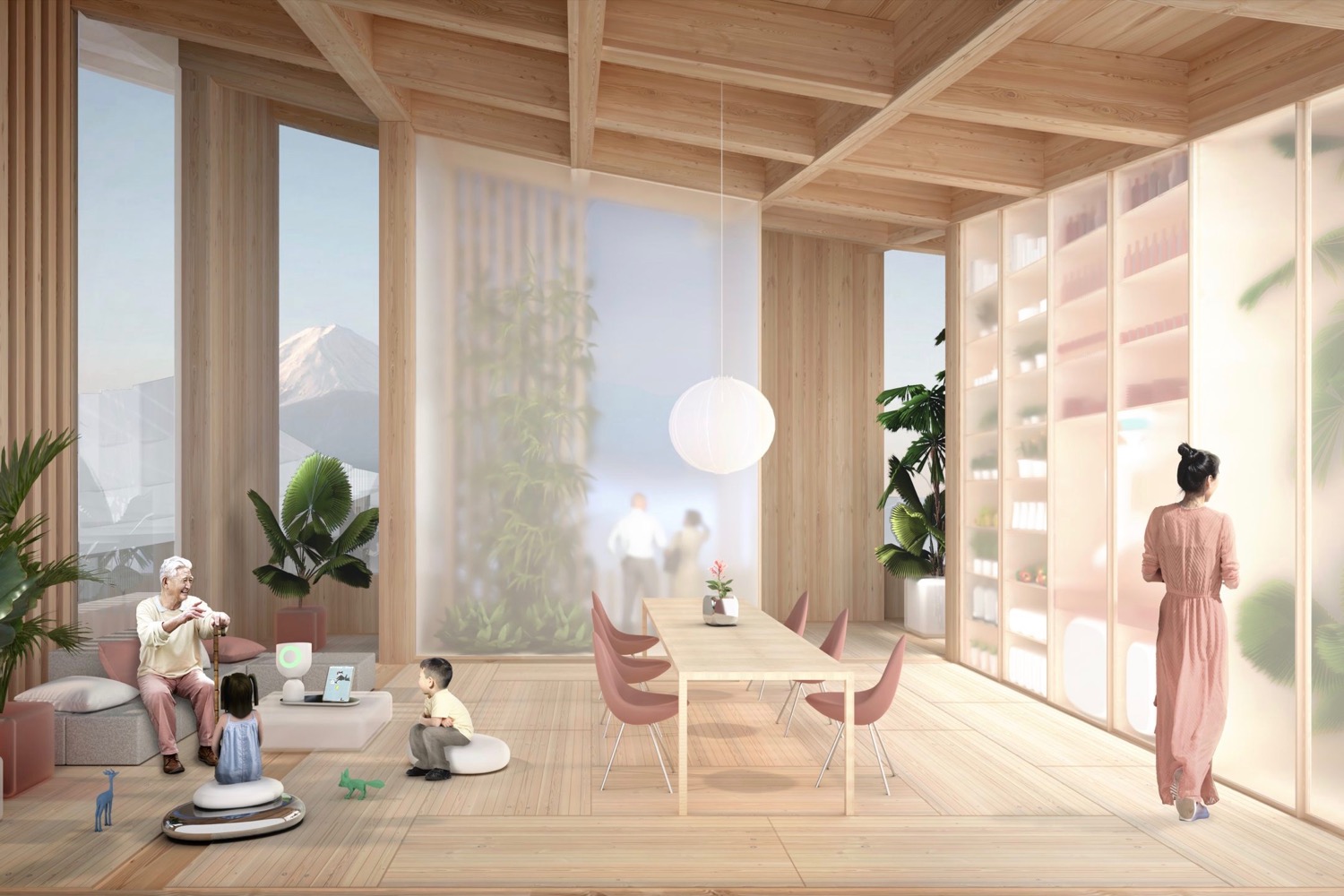Toyota doesn’t just want to demonstrate new tech on a small scale. The Japanese automaker is building an entire smart city in its home country to test out tech not just for cars, but for homes and infrastructure as well. Ground will be broken on this ambitious tech laboratory, dubbed Woven City, in 2021, Toyota CEO Akio Toyoda announced at CES 2020.
Toyoda calls Woven City, which will be located on a 175-acre site at the base of Mount Fuji, a “living laboratory.” The goal of the project is to test a number of different technologies, including autonomous cars, smart homes, robots, and artificial intelligence, together in a real-world environment, Toyoda said. CES is chock-full of companies pitching tech that can connect cars to their environment, but Woven City will be built from the ground up to enable that. People, buildings, and vehicles will all be connected with embedded sensors, Toyoda said.
Toyota commissioned Danish architect Bjarke Ingels, whose résumé includes 2 World Trade Center and Denmark’s Lego House, to design the city. The plan includes three types of streets for different uses. One will be for cars and trucks, another for lower-speed vehicles and pedestrians, and a third for pedestrians only, according to a Toyota press release. The three street types will “weave together” (hence the name Woven City), according to Toyota.
Supras and Sequoias will not appear on Woven City’s streets, but Toyota does plan to use fleets of its e-Palette autonomous electric vehicles. First seen at CES 2018, the box-like e-Palette vehicles are designed to be used interchangeably between ridesharing and delivery services. Only autonomous, zero-emission vehicles will be allowed on the city’s main thoroughfares, according to Toyota.
Woven City residents will also get in-home robots that will be able to monitor peoples’ health and take care of some basic tasks, according to Toyota. The automaker is currently developing a line of home care robots, and has placed prototypes in the homes of disabled or elderly people. All buildings will be made of wood to reduce the city’s carbon footprint, with power generated from a mix of solar roofs and hydrogen fuel cells.
Toyota plans to populate Woven City with employees and their families, as well as retired couples. The automaker is also opening the project up to any companies that want to join, and employees of those firms may move in as well. Toyota expects about 2,000 residents initially.
Follow our live blog for more CES news and announcements.
Editors' Recommendations
- Nanoleaf adds Thread to HomeKit support for Shapes, Elements, and Lines smart lights
- The Home Connectivity Alliance wants to bring you the smart home of your dreams
- Alexa can estimate how much electricity smart home devices consume
- Japanese convenience stores will use VR-controlled robots to stack shelves
- The future of smart cities may mean the death of privacy










